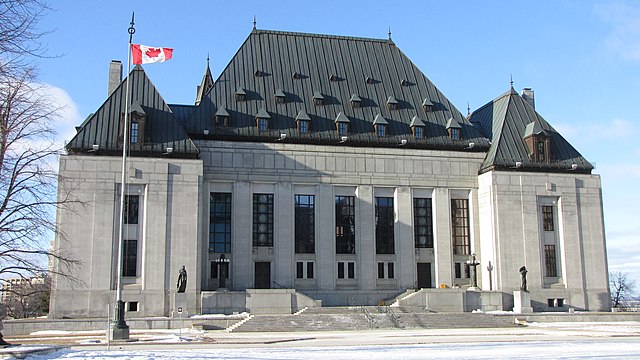The Supreme Court of Canada has overturned a federal regulation backed by organizations that advocate for women’s rights by ruling that individuals convicted of severe crimes such as murder and sexual assault may use self-induced acute drunkenness as a defense.
ent against the country’s Charter of Rights and Freedoms. The legislation was enacted by parliament in 1995.
“Its influence on the basic concepts of justice is disproportionate to the overriding advantages it provides to the public.” “It should consequently be ruled unconstitutional and of no force or effect,” Justice Nicholas Kasirer said of the statute, writing for the Supreme Court, which reached a majority decision.
The question at hand was whether or not defendants accused of committing a violent crime in a criminal court may cite acute drunkenness as a defense. This is often referred to as “non-mental illness automatism.”
In this way, defendants are able to argue that their conduct was not voluntary because they were under the influence of alcohol or drugs. As a consequence, they cannot be held legally liable for their actions.
David Lametti, the Minister of Justice for the Canadian government, said that the judgment was now being thoroughly examined.
In a statement, he said, “It is critically important to emphasize that today’s decision does not apply to the vast majority of cases involving a person who commits a criminal offense while intoxicated.” “It is critical to emphasize that today’s decision does not apply to the vast majority of cases,” he said.
According to the court, drunkenness that does not reach the level of automatism is not a valid defense for the kind of violent crime that is being discussed here in Canada.
The opinions of the Canadian courts on this topic are split. However, women’s advocacy groups have said that a law is required to protect women and children due to the disproportionate impact that violence has on these groups.
According to statistics provided by the Canadian government for the year 2019, women accounted for four out of every five victims of intimate relationship violence. Women were also five times more likely to be the target of sexual assault.
The matter was brought before the Supreme Court in the autumn of 2017 when the justices heard arguments questioning the Act’s legality in relation to three different instances that were brought before the court. In its decision released on Friday, the court said that it might order a trial to be held in one of the cases while simultaneously reinstating an acquittal in another.
The third incident was David Sullivan, who, on December 1, 2013, used a prescription medication that is known to induce psychosis. He attempted suicide by ingesting the drug. He stabbed his mother, who he believed to be an extraterrestrial when he was in a psychotic condition. After the court ruled that Sullivan could not utilize his acute drunkenness as a defense, Sullivan was found guilty of aggravated assault and assault with a weapon.
Sullivan was declared not guilty on both charges by the court of appeals because it determined the statute regarding excessive drunkenness to be unconstitutional. The prosecution challenged the verdict all the way up to the top court, which on Friday affirmed his acquittal in its ruling.
Kasirer argued that there are alternative ways for parliament to accomplish its aims to reduce severe inebriated violence and that these other ways are available.
A defendant who was accused of sexually abusing a lady in a wheelchair while he was inebriated was allowed to employ an excessive drunkenness defense by the Supreme Court in 1994. The court found in favor of the suspect’s extreme intoxication argument.
As a direct result of the decision made by the Supreme Court of Canada, the Parliament of Canada approved a statute that made it illegal for defendants to use excessive drunkenness as a defense in instances involving violent crimes.













